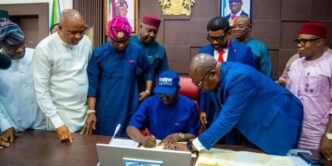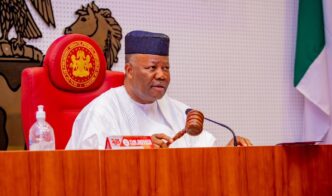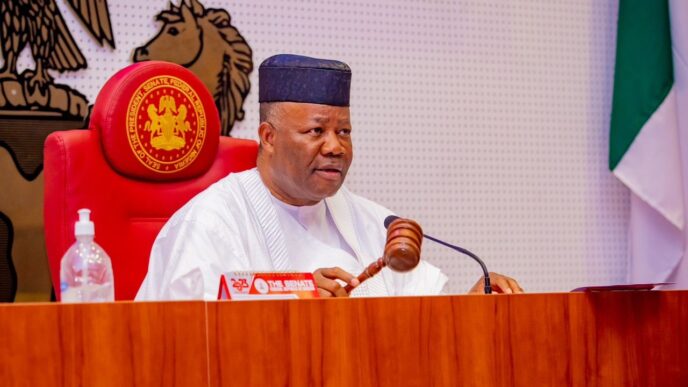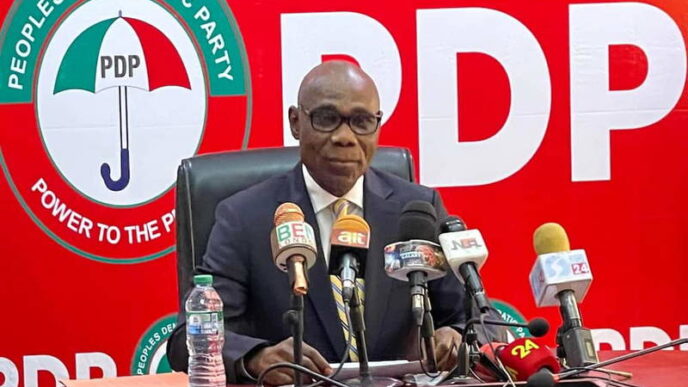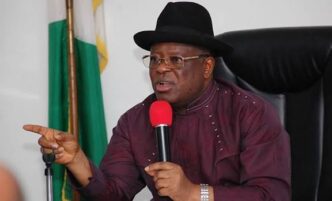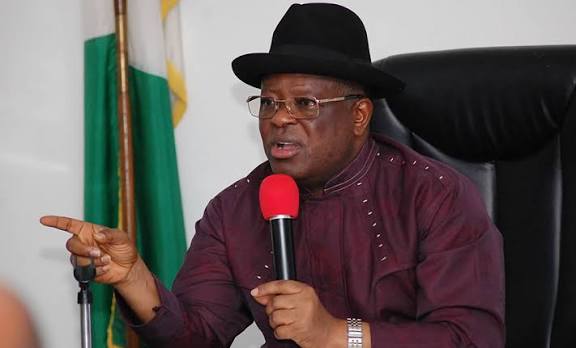The Independent National Electoral Commission (INEC) may spend about N870 billion (approximately $600 million) to conduct the 2027 general election, according to a projection by Professor Bolade Eyinla, the immediate past Chief Technical Adviser to the INEC Chairman, Professor Mahmood Yakubu.
Gatekeepers News reports that Eyinla made the projection in his keynote address at the Yiaga Africa 2027 Elections Scenarios and Election Manipulation Risk Index (EMRI) Retreat held in Abuja. His remarks came just days after Yakubu completed his ten-year tenure on October 7, 2025.
He described Nigeria’s elections as “one of the largest civil operations in peacetime”, requiring enormous financial, technological, and logistical inputs.
Why the Cost Is Rising
Eyinla explained that the projected figure takes into account inflation, currency fluctuations, and expanded operations.
He noted that previous elections cost N109 billion (US$662 million) in 2015, N189 billion (US$619 million) in 2019, and N355 billion (US$628 million) in 2023.
“Considering the current state of the economy, inflation, and the Consumer Price Index from the National Bureau of Statistics, it is estimated that conducting the 2027 general election will require about US$600 million (approximately N870 billion), assuming INEC manages its resources prudently,” Eyinla said.
According to him, on a per-voter basis, the cost comes to about US$6.72, which aligns with international standards for transitional democracies.
Nigeria’s Cost in Global Context
Eyinla highlighted that Nigeria’s election costs remain relatively low compared with other African nations.
“In Kenya, the cost per voter was US$25.9 in 2017 and US$14.9 in 2022; in Ghana, US$13.1 in 2016 and US$7.7 in 2020; in South Africa, US$5.1 in 2019 and US$7.1 in 2024; in the DRC, US$22 and US$14.37 per voter in 2023; and in Liberia, US$22 per voter in 2023,” he stated.
“Even in India, the world’s largest democracy, the cost per voter was US$8.5 in 2019.”
Funding and Technology
Eyinla stressed that Section 3(3) of the Electoral Act 2022 mandates that election funds be released at least one year before the polls. He recommended that the 2027 election budget be appropriated across the 2025, 2026, and 2027 fiscal years to ensure smooth execution.
He further emphasised the importance of prudent resource management and technological investment, noting that devices such as the Bimodal Voter Accreditation System (BVAS), Automatic Finger Identification System (AFIS), and Automatic Biometric Identification System (ABIS) are essential for credible elections.
“In 2023, voter registration and accreditation devices alone accounted for nearly 35 per cent of the election budget, and similar or higher costs are expected in 2027,” he said.
Logistics and Security Challenges
Eyinla also underscored the massive logistical challenges facing INEC, which must deploy personnel and materials to over 200,000 polling locations, including remote and conflict-prone areas.
He said the commission relies heavily on service providers for vehicles, boats, aircraft, and armed escorts to ensure the safe and timely delivery of election materials.


